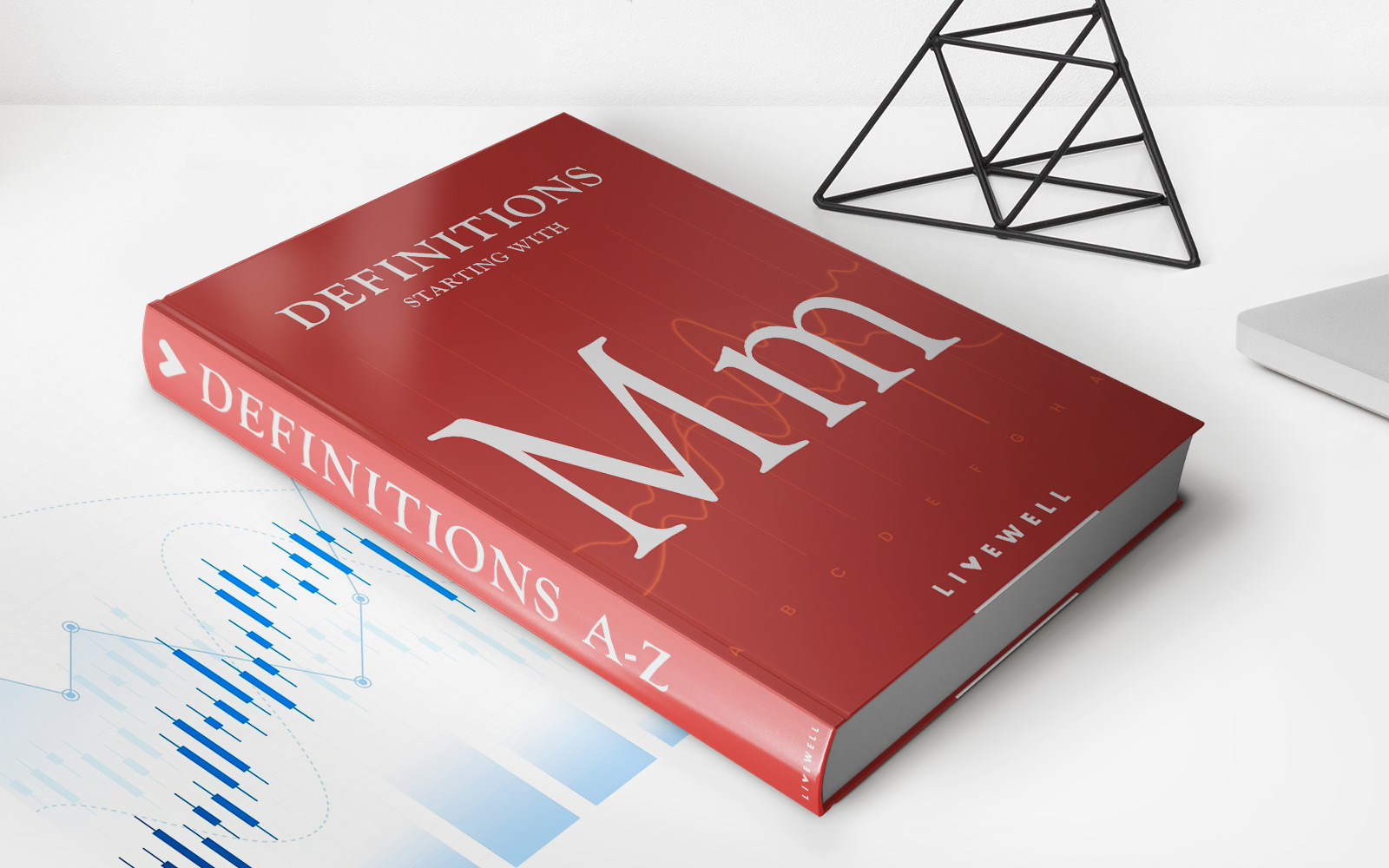Home>Finance>How Are Pension Funds And Mutual Funds Similar?


Finance
How Are Pension Funds And Mutual Funds Similar?
Published: January 23, 2024
Discover the similarities between pension funds and mutual funds in the world of finance. Uncover how these investment vehicles can help you achieve your financial goals.
(Many of the links in this article redirect to a specific reviewed product. Your purchase of these products through affiliate links helps to generate commission for LiveWell, at no extra cost. Learn more)
Table of Contents
Introduction
Pension funds and mutual funds are two prominent investment vehicles that play crucial roles in individuals' financial planning and retirement savings. While both offer opportunities for wealth accumulation and financial security, they operate in distinct ways. Understanding the similarities and differences between pension funds and mutual funds is essential for making informed investment decisions.
In this article, we will delve into the definitions of pension funds and mutual funds, explore their similarities and differences, and highlight the significance of these investment options in the context of long-term financial planning. By gaining a comprehensive understanding of these investment instruments, readers will be better equipped to navigate the complex landscape of financial products and make informed choices that align with their investment objectives and risk tolerance.
Pension funds and mutual funds are integral components of the global financial system, and their impact extends beyond individual investors to encompass broader economic dynamics. As such, a nuanced understanding of these investment vehicles is essential for both seasoned and novice investors, as well as financial professionals seeking to enhance their knowledge base and provide valuable insights to their clients.
Let's embark on a journey to unravel the intricacies of pension funds and mutual funds, exploring their similarities, differences, and the pivotal roles they play in shaping individuals' financial well-being.
Definition of Pension Funds
Pension funds are investment pools specifically designed to provide retirement income to employees. These funds are typically sponsored by employers or labor unions, and contributions are made by both the employer and the employees, with the aim of building a corpus that will generate income during retirement years. Pension funds are a form of deferred compensation, offering employees a means to secure their financial future beyond their working years.
One of the defining characteristics of pension funds is their long-term investment horizon. As these funds are designated to fund retirement benefits, the investment strategies employed are geared towards achieving sustained growth over an extended period. Pension funds often allocate a significant portion of their portfolios to equities, fixed-income securities, and alternative investments, aiming to strike a balance between capital appreciation and income generation while managing risk effectively.
Furthermore, pension funds are subject to regulatory oversight to ensure prudent management and safeguard the interests of the beneficiaries. The regulatory framework governing pension funds varies across jurisdictions, encompassing aspects such as contribution limits, investment guidelines, and fiduciary responsibilities. These regulations are intended to uphold the financial stability of pension funds and protect the retirement benefits of employees.
It is important to note that pension funds can take various forms, including defined benefit plans, defined contribution plans, and hybrid plans that combine elements of both. Defined benefit plans promise a specific benefit amount upon retirement, typically based on salary and years of service, and the responsibility for investment management rests with the employer. In contrast, defined contribution plans entail individual accounts for each participant, with the ultimate retirement benefit dependent on the contributions made and the investment performance of the underlying assets.
In summary, pension funds serve as essential vehicles for retirement savings, offering employees a structured means to accumulate wealth over their working years and secure a reliable income stream during retirement. The regulatory framework, investment strategies, and plan structures associated with pension funds underscore their significance in the realm of long-term financial planning and retirement security.
Definition of Mutual Funds
Mutual funds are investment vehicles that pool money from multiple investors to invest in a diversified portfolio of securities such as stocks, bonds, and other assets. These funds are managed by professional fund managers who leverage their expertise to make investment decisions in line with the fund’s objectives and investment strategy. Mutual funds offer individual investors access to a broad range of securities, providing diversification and professional management without the need for significant capital outlay.
One of the key attractions of mutual funds is their accessibility and affordability, making them an ideal option for investors looking to participate in the financial markets without the complexities of individual security selection and portfolio management. Investors can purchase mutual fund shares, which represent their proportional ownership of the fund’s holdings, and benefit from the potential returns and income generated by the underlying investments.
Mutual funds encompass a wide spectrum of investment strategies, catering to varying risk appetites and investment objectives. These strategies can range from equity funds that focus on stocks, bond funds that primarily invest in fixed-income securities, balanced funds that offer a mix of stocks and bonds, and specialty funds targeting specific sectors or asset classes. Additionally, mutual funds may be actively managed, where the fund manager makes investment decisions based on research and market analysis, or passively managed, seeking to replicate the performance of a specific market index.
Furthermore, mutual funds are subject to regulatory oversight to ensure transparency, investor protection, and compliance with investment guidelines. Regulatory bodies oversee the operations of mutual funds, requiring disclosure of fund objectives, fees, risks, and past performance to aid investors in making informed decisions. This regulatory framework aims to uphold the integrity of mutual funds and safeguard the interests of investors.
In essence, mutual funds serve as a versatile and accessible avenue for individuals to invest in the financial markets, benefiting from professional management and diversification while aligning their investments with their financial goals and risk tolerance. The diverse array of mutual fund options, coupled with regulatory safeguards, underscores their significance in empowering investors to participate in wealth creation and capital markets.
Similarities between Pension Funds and Mutual Funds
Despite their unique characteristics and target beneficiaries, pension funds and mutual funds share several similarities, underscoring their roles as prominent investment vehicles in the financial landscape.
- Professional Management: Both pension funds and mutual funds are managed by professional investment managers who are responsible for making strategic investment decisions on behalf of the fund’s participants or investors. These managers leverage their expertise and market insights to construct diversified portfolios, optimize asset allocation, and navigate market dynamics to achieve the fund’s objectives.
- Diversification: Both pension funds and mutual funds offer diversification benefits to their participants or investors. By pooling resources and investing in a broad array of securities, they mitigate specific risk exposures and enhance the overall risk-adjusted returns of the portfolio. This diversification serves to spread risk across different asset classes and securities, reducing the impact of adverse market movements on the fund’s performance.
- Regulatory Oversight: Both pension funds and mutual funds are subject to regulatory oversight aimed at ensuring transparency, compliance with investment guidelines, and safeguarding the interests of participants or investors. Regulatory bodies impose disclosure requirements, investment restrictions, and reporting standards to promote accountability and protect the rights of beneficiaries and investors.
- Long-Term Investment Horizon: Both pension funds and certain types of mutual funds, such as retirement-focused funds, typically maintain a long-term investment horizon. This approach aligns with the objective of building wealth over an extended period, whether to fund retirement benefits in the case of pension funds or to facilitate long-term capital appreciation and income generation for mutual fund investors.
These shared characteristics highlight the fundamental principles that underpin the operations of pension funds and mutual funds, emphasizing the importance of professional management, diversification, regulatory adherence, and long-term wealth accumulation in the realm of investment vehicles.
Differences between Pension Funds and Mutual Funds
While pension funds and mutual funds exhibit similarities in certain aspects, they also possess distinct characteristics that set them apart in terms of their structure, objectives, and target participants.
- Participant Base: Pension funds are typically sponsored by employers or labor unions, with contributions made by both the employer and the employees. These funds are designed to provide retirement benefits to employees, forming an integral part of the employer’s compensation package. In contrast, mutual funds are open to individual investors who can purchase fund shares directly from the fund or through intermediaries such as financial advisors or brokerage firms, catering to a broader investor base beyond the confines of employment relationships.
- Investment Horizon: Pension funds are oriented towards long-term wealth accumulation and retirement income, aligning with the extended time horizon of employees’ careers and post-retirement years. The investment strategies of pension funds are tailored to support sustained growth and income generation over several decades, reflecting the need to secure financial stability during retirement. On the other hand, mutual funds may cater to various investment horizons, ranging from short-term objectives to long-term wealth accumulation, providing flexibility to investors with diverse financial goals and timeframes.
- Regulatory Framework: Pension funds are subject to specific regulatory requirements governing contribution limits, investment guidelines, fiduciary responsibilities, and reporting standards, aimed at safeguarding the retirement benefits of employees and ensuring prudent management. The regulatory framework for mutual funds focuses on investor protection, transparency, and disclosure, encompassing aspects such as fee structures, risk disclosures, and past performance reporting to empower investors with the necessary information to make informed decisions.
- Employer Sponsorship: Pension funds are often sponsored or administered by employers, who bear the responsibility for managing the funds, making contributions, and fulfilling regulatory obligations. In contrast, mutual funds are typically managed by investment companies or asset management firms, operating independently of specific employers and catering to a diverse investor base with varying financial objectives.
These differences underscore the distinct roles and operational dynamics of pension funds and mutual funds, reflecting their unique positioning within the spectrum of investment options and their tailored approaches to addressing the financial needs of employees and individual investors.
Conclusion
In conclusion, the comparison between pension funds and mutual funds reveals the nuanced distinctions and inherent value offered by these investment vehicles in the realm of wealth accumulation, retirement planning, and long-term financial security. While both pension funds and mutual funds share common elements such as professional management, diversification, and regulatory oversight, their divergent structures and objectives underscore their unique roles in catering to the financial needs of distinct participant bases.
Pension funds stand as pillars of retirement planning, sponsored by employers and tailored to provide employees with a reliable source of income during their post-employment years. The long-term investment horizon, regulatory safeguards, and employer sponsorship characterize the essence of pension funds, emphasizing their significance in fostering retirement security and financial stability for workers.
On the other hand, mutual funds serve as versatile investment vehicles accessible to individual investors, offering a spectrum of investment strategies and horizons to align with diverse financial goals and risk profiles. The accessibility, affordability, and regulatory transparency associated with mutual funds empower investors to participate in wealth creation, capital markets, and long-term wealth accumulation, transcending the confines of employment-based retirement planning.
By comprehending the distinctions and shared principles of pension funds and mutual funds, individuals can make informed investment decisions aligned with their financial aspirations and retirement objectives. Moreover, financial professionals can leverage their understanding of these investment vehicles to provide tailored guidance and recommendations to clients, optimizing the integration of pension funds and mutual funds within comprehensive financial plans.
Ultimately, the juxtaposition of pension funds and mutual funds underscores the critical role of these investment instruments in shaping individuals’ financial well-being, fostering wealth creation, and fortifying retirement preparedness. As the financial landscape continues to evolve, the enduring relevance of pension funds and mutual funds as cornerstones of long-term financial planning remains steadfast, emphasizing their enduring impact on the journey towards financial security and prosperity.














